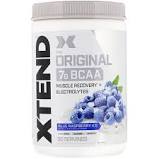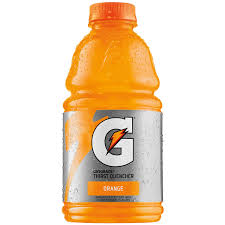Cracking The Macronutrients (Part 3)
- Elliot Wilson

- Oct 4, 2020
- 4 min read

Onto our last macronutrient, Carbohydrates. We all love carbs! But, sadly our bodies generally don't react to them well. Unless of course, you're a teenager. So far in my articles, I've been giving carbs a hard time, but they're actually beneficial at the right times, and they are going to be your body's main source of energy when working out.
First off Carbs, like Protein, makeup 4 calories per gram, and are the macronutrient that increases insulin to its highest point. There are also different types of carbs, fast-digesting (simple) and slow-digesting (complex). To make this easier I'm just going to drop the bomb right now on the complex carbs. THEY SUCK! The idea behind them was to get your body to absorb carbs slowly so that your insulin levels don't go up too much. But guess what, they still go up AND they stay elevated for 8 hours. Why would you want that?!

You wouldn't. Not to mention, if you're trying to get your carbs to digest slowly, you're clearly not taking them at the right time. More on that in a minute. First, here's what happens when you ingest carbs. Your body breaks it down into sugar, its what all carbs get broken down as. The body then stores it as glycogen, in either your muscles or your liver. Both muscles and the liver can hold glycogen. However, if both of those glycogen stores are full where do you think your body will store those extra carbs? Yep.....as fat! Now there are two ways that your body uses glycogen. The first is obviously during intense workouts, which depletes the muscle glycogen as your muscles are doing hard work (or at least they should be) during your workouts. The second way is when you're fasting, which is when the body uses the glycogen stored in the liver. Liver glycogen is always the first energy source to be used. Your body doesn't want to tap into its muscles for glycogen unless it really needs to, like during a workout, or when you're in starvation mode.
Now that you know how carbs work, we have to figure out when to eat them. You now know that the body utilizes carbs through training and fasting, and after doing either one of these your glycogen stores will start to deplete. Some of you are probably wondering "so if I do fasting, will I be able to eat carbs without working out?" Well, not so fast. Remember, if you want to burn fat and lose weight the healthy way, you need to have muscle. How do you build/maintain muscle? You have to get your body to adapt the right way. When we resistance train, and keep tension on the muscles for long periods of time, your muscle glycogen and the muscles themselves break down! Your body will also realize that it has to keep the muscle due to the intense workouts, or it will 'die' so to speak.

(MUSCLE TEARS AFTER TRAINING)
After these intense sessions, your muscles are breaking down and are injured. They need to recover with amino acids and get filled back up with glycogen. When your body sustains an injury, it'll do whatever it can to heal it, and that's exactly what it'll do after a training session. If you don't put it carbs and protein post-workout, your body will draw in those resources from other parts of your body. Yes, your body will break down other muscles for protein to repair the muscles you just damaged if you don't recover properly. Knowing that, it seems like the best time to take in your carbs is right after the workout, with the BCAA (Branch Chain Amino Acids) of course.
When you take in carbs from the time your workout ends up to a few hours from then, your body will shuttle them into the muscles as they need to repair right away. Your body will do the same with the BCAA you take post-workout too. And this is also why the slow-digesting carbs are crap! They do no good at muscle repair and replenishment. When you damage the muscles, you need something IMMEDIATELY to initiate the recovery process. That's why we take BCAA, the fastest digesting supplement for muscle-building and a very fast-digesting carb. I recommend Gatorade powder, but make sure the aminos come first!
Taking the fast-digesting carbs post-workout means that all of that glycogen will be absorbed quickly, meaning that there won't be any lingering glycogen going through your system for too long after the workout. If you took slow carbs, you'd still have glycogen going through your system even 6 hours after the workout. In that scenario, your body's already found a way to recover, and all that access sugar gets stored, you guessed it, as fat.
Now you've learned everything you need to know about the macronutrients! In my next article, I'll show you how to use your knowledge of the macros to put together the ideal diet for fat loss, and to help get you your dream physique.









Comments